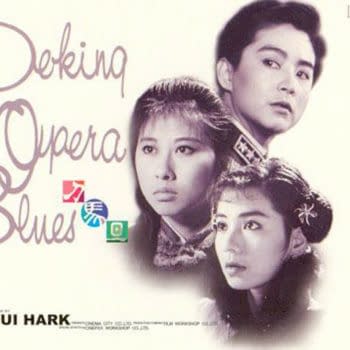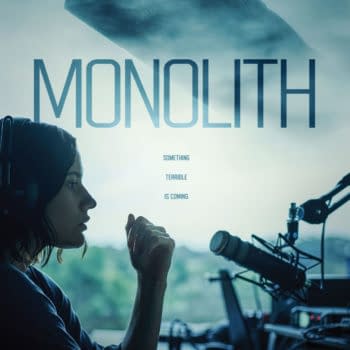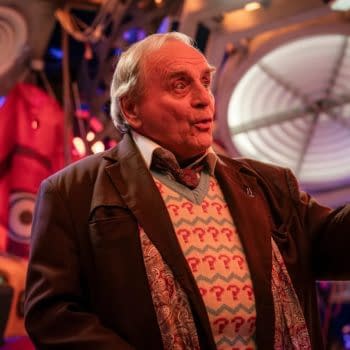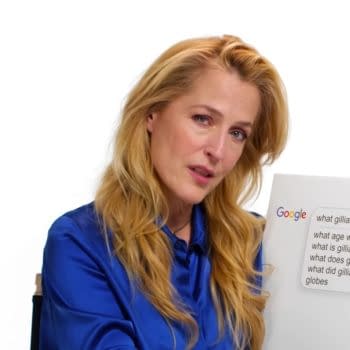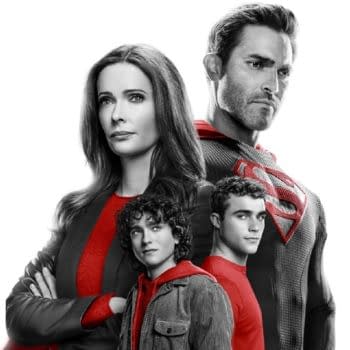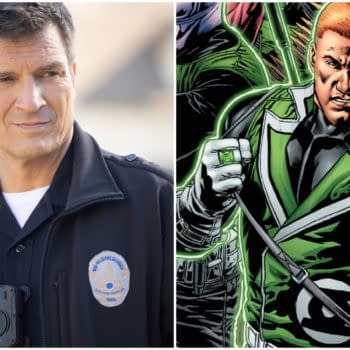Posted in: BBC, Doctor Who, TV | Tagged: bbc, doctor who, Philip Hinchcliff, russell t davies
Doctor Who: Philip Hinchcliff Believes 25-Minute Episodes Work Better
We all know Doctor Who had a format makeover when Russell T. Davies brought the show back in 2005. The original show used to be half-hour episodes and by the 1970s, stories were comprised of four serialized episodes. In an interview with The Radio Times, Philip Hinchliffe, who produced Doctor Who from 1974 to 1977, said he felt the old format of four serialized episodes to tell a story was more satisfying. Hinchcliffe is considered one of the best producers that the show ever had. He presided over Tom Baker's early run as the 4th Doctor.
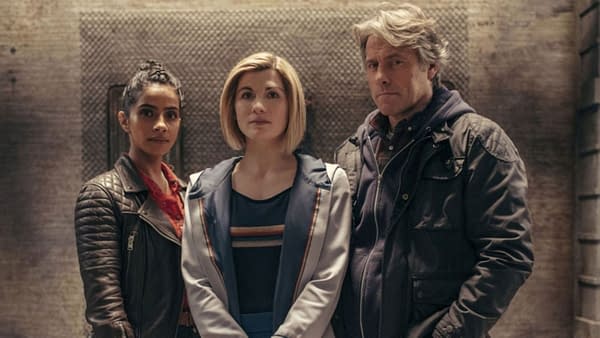
"It was a serial," Hinchcliffe said. "So the whole idea was that every week, there's an episode with a cliffhanger, and the audience talked about it during the week, and then they came back. Four half-hours, or four 25 minutes, is pretty much the length of a movie. And so that that was the ideal story arc, over four half-hours.
"Chris Chibnall and I talked about this when I met him a couple years ago – we had our natural cliffhangers. He said that he's trying to construct within his story structures to have 'cliffhanger moments', if you know what I mean, going through. But it all happens much faster, at a much faster pace."
Hinchcliffe didn't think he would want to produce the show in its current 45-minute format: "I don't think it would. I don't think that the 45 or 50 minutes story is as satisfying in some ways, because you don't get to know the characters much, or as well as in my stories.
"You need to invest something in the characters and care about what's going to happen. And that's not always just the Doctor and the companion, it's the other people in the stories."
He did, however, like the 2-part stories told in 45-minute episodes, saying they "often work really well."
"Because again, they're movie-length. And I think there is always a danger with the single episodes that, you know, if the Doctor has to solve the whole thing, you have to have shortcuts, in terms of the way he manages to defeat everybody.
Hinchcliffe also remembered that his predecessor Barry Letts and regular Doctor Who writer Terrence Dicks told him, "'We've got this thing called the sonic screwdriver, but we ration how much we use it, otherwise it's one bound, and the Doctor's free.' And I think that's a danger with modern storytelling."
"I mean, I'm not actually thinking of any particular story recently, because I haven't watched a lot of them. But I think that is a danger when you're trying to set up a mystery, the danger, defeat the enemy…. you know, and get back for tea-time!"
Despite his reservations about the single episode structure, Hinchcliffe called the revived version of Doctor Who "a fabulous success", praising it for having "reinvented the show but keeping the core values."
"I went down a couple of years ago when Chris Chibnall took over – they were marvellous, showed me everything that was going on," he said. "And I've met a few of the modern directors when I've been at conventions and things like that. So I've talked in some detail to them about how it's been made since it came back.
"I thought Russell T Davies, and then Steven Moffat, have done a fantastic job. And that's, I think, why there's still fans discovering my era. Without the programme having come back in such a successful form, I think that my era and the previous ones would have kind of just dwindled… but somehow there's a new focus on them. So that's terrific, it's great."
With its 45-minute episodes (allowing for ad breaks in overseas broadcasters to fill up an hour slot), Doctor Who now fits in the hour-long procedural format that most TV dramas fit into. 45 minutes allowed the current writers to trim out a lot of fat in the pacing for a faster, punchier done-in-one episode that current audiences are more used to. Whether a serialized story told over 4 half-hour episodes still works can be experienced through Big Finish's audio dramas of new Doctor Who stories. There's a longer, more interesting debate to have here.

Bleeding Cool TV on Instagram: For all of the stuff too random and bizarre to make the site, make sure to follow us on Instagram: Bleeding Cool TV (@bleedingcooltv).
BCTV Daily Dispatch: For a look at what's going on across the television and streaming landscape, sign up for Bleeding Cool's daily email round-up of the news you need to know here.



